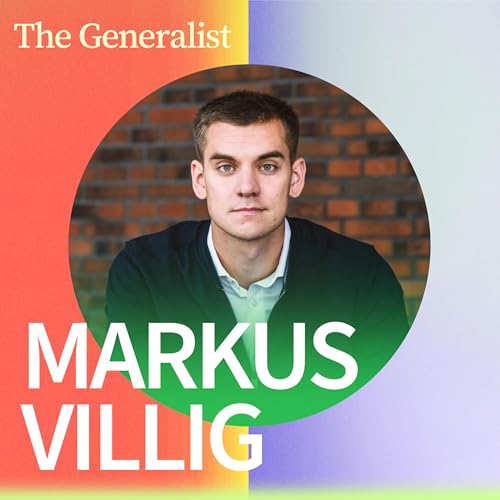Prediction markets are no longer a fringe curiosity. They are becoming one of the most revealing instruments in modern finance. Platforms like Polymarket, once a niche corner of crypto, now regularly clear billions in monthly volume as traders speculate on everything from political outcomes to sports to cultural events. Few people saw this future as early, or as clearly, as Joey Krug.
A decade before prediction markets went mainstream, Joey dropped out of college to co-found Augur, the first decentralized prediction market protocol. He later became one of the most influential investors in the category by backing Polymarket at Founders Fund. In this conversation, Joey shares why the moment for prediction markets has finally arrived, what has changed, and how these markets are reshaping information flows across society.
We explore:
- The experimental mindset that led Joey from horse-racing predictions to mining bitcoin in high school
- Why Augur was the right idea at the wrong moment, and what it taught Joey about timing and infrastructure
- The product, liquidity, and founder-market fit signals that persuaded Founders Fund to back Polymarket
- Why resolution is the hardest problem in prediction markets, and how Polymarket approaches it
- How crypto treasury companies are emerging as a major force and where ETFs fit in
- Why mimetic behavior drives entire sectors and how savvy investors read those waves
- The rise and fall of Operation Choke Point and its impact on crypto
- How Founders Fund reframed Joey’s approach to evaluating founders, markets, and structural shifts
—
Thank you to the partners who make this possible
Guru: The AI source of truth for work.
Auth0: Secure access for everyone. But not just anyone.
—
Transcript: https://www.generalist.com/p/joey-krug-on-prediction-markets
—
Timestamps
(00:00) Intro
(04:10) How Joey began making predictions with horse racing
(08:00) Why Joey began coding with Applesoft BASIC
(09:32) How Joey first discovered crypto
(11:06) Why Joey dropped out of school to pursue crypto
(12:52) The origins of Joey’s interest in medical school
(16:15) How Joey spends nights and weekends splitting time between biotech and trading
(17:18) The early influences behind Augur’s creation
(19:40) Why prediction markets captivated early crypto thinkers
(23:26) The unlock crypto created for prediction markets
(29:22) How Polymarket began and why Joey decided to back it
(32:11) What made Polymarket the right team
(35:25) The FBI raid and how Shane responded
(38:20) Why Joey expected Polymarket’s volume to hold after the election
(40:20) The trend toward duopolies in financial markets
(42:37) What sets Polymarket’s product design apart
(45:25) How to keep prediction markets clear and unambiguous
(48:31) The rise of crypto treasury companies and FF’s work with BitMine
(51:26) The value of crypto treasuries and the role of ETFs
(54:33) The mimetic rise of crypto treasury companies
(57:03) Joey’s take on where the crypto market stands now
(1:00:23) Why Founders Fund is bullish on ETH
(1:03:03) Operation Choke Point, regulatory whiplash, and the end of the crypto crackdown
(1:06:04) Where the Clarity Act falls short
(1:08:56) How Joey’s thinking has evolved since joining Founders Fund
(1:13:21) Final meditations
—
Follow Joey Krug
LinkedIn: https://www.linkedin.com/in/joeykrug
—
Resources and episode mentions: https://www.generalist.com/p/joey-krug-on-prediction-markets
—
Production and marketing by penname.co. For inquiries about sponsoring the podcast, email jordan@penname.co.
 1 hr and 8 mins
1 hr and 8 mins 1 hr and 20 mins
1 hr and 20 mins
 1 hr and 19 mins
1 hr and 19 mins 1 hr and 19 mins
1 hr and 19 mins 1 hr and 17 mins
1 hr and 17 mins 1 hr and 16 mins
1 hr and 16 mins 1 hr and 9 mins
1 hr and 9 mins
